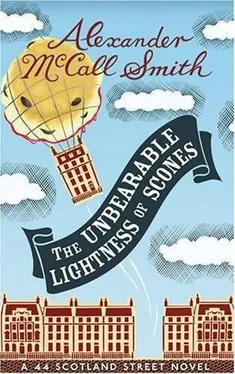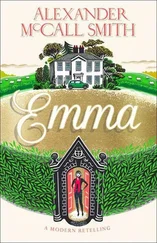Alexander Smith - Unbearable Lightness of Scones
Здесь есть возможность читать онлайн «Alexander Smith - Unbearable Lightness of Scones» весь текст электронной книги совершенно бесплатно (целиком полную версию без сокращений). В некоторых случаях можно слушать аудио, скачать через торрент в формате fb2 и присутствует краткое содержание. Жанр: Триллер, на английском языке. Описание произведения, (предисловие) а так же отзывы посетителей доступны на портале библиотеки ЛибКат.
- Название:Unbearable Lightness of Scones
- Автор:
- Жанр:
- Год:неизвестен
- ISBN:нет данных
- Рейтинг книги:4 / 5. Голосов: 1
-
Избранное:Добавить в избранное
- Отзывы:
-
Ваша оценка:
- 80
- 1
- 2
- 3
- 4
- 5
Unbearable Lightness of Scones: краткое содержание, описание и аннотация
Предлагаем к чтению аннотацию, описание, краткое содержание или предисловие (зависит от того, что написал сам автор книги «Unbearable Lightness of Scones»). Если вы не нашли необходимую информацию о книге — напишите в комментариях, мы постараемся отыскать её.
Unbearable Lightness of Scones — читать онлайн бесплатно полную книгу (весь текст) целиком
Ниже представлен текст книги, разбитый по страницам. Система сохранения места последней прочитанной страницы, позволяет с удобством читать онлайн бесплатно книгу «Unbearable Lightness of Scones», без необходимости каждый раз заново искать на чём Вы остановились. Поставьте закладку, и сможете в любой момент перейти на страницу, на которой закончили чтение.
Интервал:
Закладка:
“Even Tofu?” asked Olive. “Will you even miss him, Miss Harmony?”
If Miss Harmony hesitated, it was only for the briefest of moments before she replied. “But of course I’ll miss Tofu, Olive! I shall miss all of you.”
Olive looked doubtful.
“Will you have children yourself, Miss Harmony?” asked Skye, and added, “Are you already pregnant?”
“Goodness no,” said Miss Harmony. “I mean, I’m not expecting a baby just yet, but I would certainly like one.”
“Does your husband know how to make you pregnant, Miss Harmony?” Skye persisted. “Will you be able to teach him?”
Miss Harmony blushed, and laughed. “Let’s not talk about me,” she said. “Let’s talk about what fun you’re going to have with Mr. Bing as your new teacher.”
And then, after that conversation, there had been the leave-taking. Many of the children had cried, and Elspeth Harmony had found herself weeping too, and had been obliged to stop her car in Spylaw Road and compose herself before she could drive on. It had been a good school in which to teach, and she had loved the children, for all their little ways. Love: the quality in a schoolteacher which no training can instil; it must be there, in the heart, ready to be discovered, poured out.
Now love would find a different focus in her life. She had a husband, and a home to make out of this rather austere bachelor establishment into which she had moved. Of course that required tact; Matthew was proud of his flat and of the things it contained. He had shown her his British aviation prints in the bathroom and his framed batik from Bali. Neither of these, she felt, had a long-term future in the flat, but she had refrained from saying anything just yet. And as for the kitchen, the only possible approach, she felt, was a scorched-earth one. She had seen pictures of Clive Christian kitchens and she thought one of those would fit very well in India Street; it was not the sort of street to have Clive Christian kitchens at present, but all that could change.
Then there was the question of Matthew’s wardrobe. On the second day after their return from their honeymoon, while Matthew had gone off to the gallery, Elspeth, still clad in the silk dressing gown she had bought in Singapore, had looked through Matthew’s wardrobe and bedroom cupboard, examining his clothes. It had felt a bit strange at first, to be looking through the clothing of another like that, but she had reminded herself that they were married now and married people had no secrets from one another, or should have no secrets. And surely the most obvious place to start in this policy of sharing was the wardrobe.
She started with his sock drawer. There were no surprises there – in that few of the socks seemed to match. She smiled: that was a universal problem, connected in some way with the Bermuda Triangle which most washing machines seemed to possess and which swallowed socks, flushing them away to some unknown destination somewhere. She had the solution to that, though – those small rubber rings through which socks could be threaded in pairs, thus keeping them together in the wash, like swimmers sharing the same lifebelt.
She opened the drawer below that, and closed it again quickly. She was not ready for underpants. Not yet. After years of marriage perhaps, but not now. So she moved on: a sweater in a curious beige colour – Matthew’s distressed oatmeal sweater, as it happened. That would have to go. And folded underneath it a pair of crushed strawberry corduroy trousers. She took these out and examined them. Here and there the corduroy was worn; surely they could be thrown out now. She put them on the floor. Now for the jackets.
But by the end of her survey, Elspeth had made a large pile of Matthew’s clothes in the middle of the floor. The distressed oatmeal sweater; the crushed strawberry trousers; four jackets which looked as if they had lost all shape and will to live; three pairs of shoes in which the leather was wrinkled and cracked.
She went into the hall and looked up a number in the local directory. Deceased houses respectfully cleared, said the advertisement. Well, this was not a deceased house, but these were obviously people who would know how to get rid of old clothes. She dialled the number and was answered by a man who spoke respectfully, almost in sepulchral tones. Yes, they could come that morning, and yes, they could take anything.
She went into the kitchen and made herself a cup of coffee. It was a very satisfying thing, she felt, this looking after a man. Men were so vulnerable, she thought; they need us so badly, poor dears. And think what they would look like without us. Just think.
97. Olive Is Outraged
Bertie walked across the Meadows with his father after an eventful evening at the First Morningside Cub Scouts. Stuart had travelled up to collect him on the 23 bus, but had decided they should walk back to Scotland Street. It was a warm evening, and Bertie, it seemed, was still full of energy. The walk might use up some of that, though that was by no means certain: small boys, he had discovered, were possessed of a boundless reserve of energy barely sapped by even lengthy periods of exercise. Where does it go? Stuart asked himself. Why does it drain away as the years go past, to the point where even the decision to walk from Scotland Street to the Mound involves a certain determination, a supererogatory commitment? And, more worryingly, at what point am I on that inevitable entropic curve?
Bertie wanted to talk to his father about what had happened at cubs, but was still going over it in his mind, rehearsing the extraordinary sequence of events that had suddenly blown up and then played itself out with astonishing speed. It had all started when the various sixers were busy preparing trays of items for Kim’s Game. They had been told the basic rules – items were set out on a tray in random order. The tray was then covered with a cloth, which was then removed for a minute, during which time the contender had to try to memorise all the items that the tray contained. “It’s called Kim’s Game, boys and girls,” said Akela.
Bertie put up his hand. “That’s after the novel by Rudyard Kipling,” he said politely. “Kim was a little boy who got caught up in the Great Game.”
Akela looked at him with surprise. “That’s quite correct,” she said. “Well done, Bertie. And have you read Kim ?”
Bertie nodded. “I like Mr. Kipling’s books,” he said. “And I’ve read the Just So Stories and The Jungle Book , and one or two others. But my mummy doesn’t like them. She says Mr. Kipling was a reactionary.”
“And I bet Mr. Kipling would say your mother’s a cow,” whispered Tofu. “Only joking, Bertie.”
Olive’s hand shot up. “Akela,” she called out. “I have something to report. Tofu’s just called Bertie’s mummy a cow. Yes you did, Tofu! I heard you!”
Akela frowned. “Well, let’s not argue,” she said. “I’m sure that Tofu would never say a thing like that, would you, Tofu?” She clapped her hands. “Now each six has its tray, so you can all start.”
Olive took control of their tray and began to set out the random articles that had been provided. Old dominoes, a comb, a key ring and so on; all were laid out on the tray ready for memorising. The boys watched her intently, none more so than Tofu, who was glaring at her through narrowed eyes.
“Why did you clype on me?” he hissed.
“I don’t know what you mean,” said Olive airily, as she continued to arrange the items. “If you’re asking me why I told Akela about that horrid thing you said about Bertie’s mummy, then it was because it was my duty as a sixer. And anyway, it’s not Bertie’s mummy’s fault, is it Bertie? Your mummy can’t help being a cow, can she?”
Читать дальшеИнтервал:
Закладка:
Похожие книги на «Unbearable Lightness of Scones»
Представляем Вашему вниманию похожие книги на «Unbearable Lightness of Scones» списком для выбора. Мы отобрали схожую по названию и смыслу литературу в надежде предоставить читателям больше вариантов отыскать новые, интересные, ещё непрочитанные произведения.
Обсуждение, отзывы о книге «Unbearable Lightness of Scones» и просто собственные мнения читателей. Оставьте ваши комментарии, напишите, что Вы думаете о произведении, его смысле или главных героях. Укажите что конкретно понравилось, а что нет, и почему Вы так считаете.












